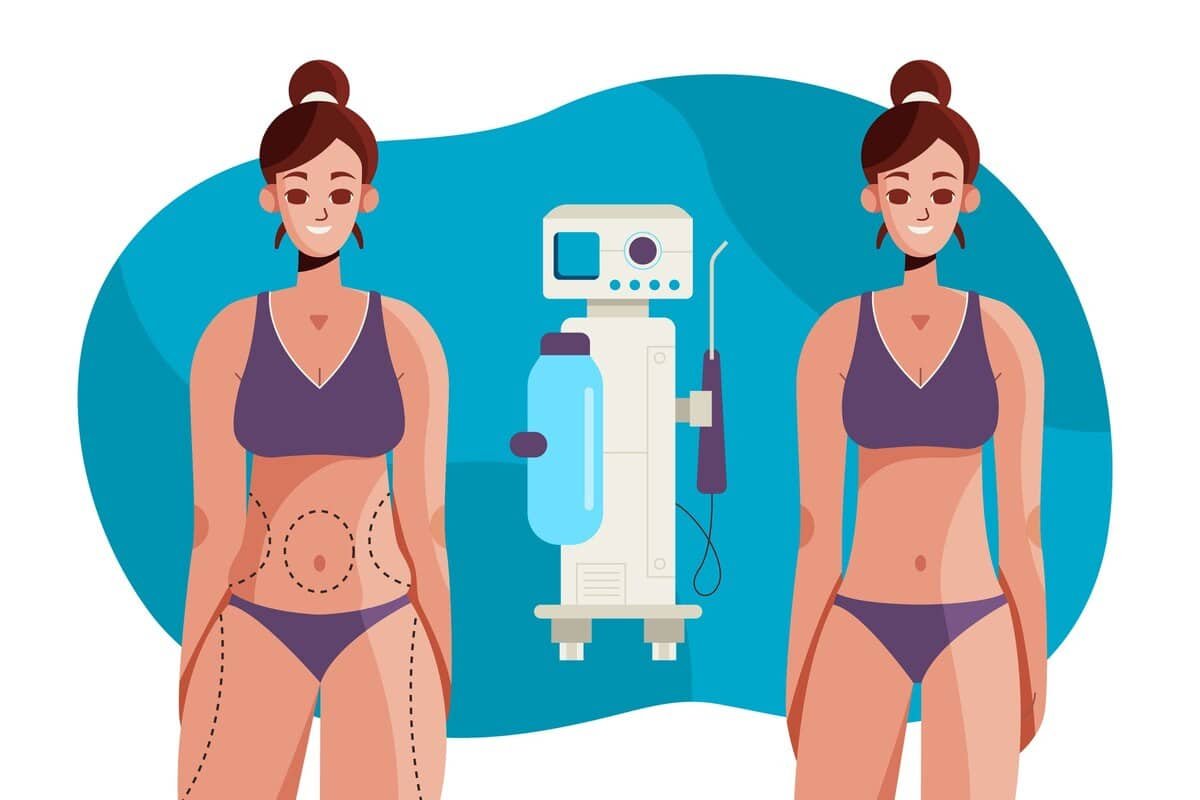Millions of people worldwide have dementia which has far-reaching effects. Dementia technology is helping dementia patients and caregivers in new ways. Technology is transforming dementia care.
Dementia Technology: Enhancing Communication And Connection
Communicating with loved ones is a significant issue for dementia patients. Thankfully technology has many solutions. Apps like A Better Visit provide dementia-specific interactive activities to make visits fun and connect patients to their support networks.
Phones with big tactile buttons and transparent screens make voice calls easier for dementia patients. This technology keeps dementia patients linked with friends and family improving their emotional well-being and minimizing loneliness.
Enabling Independent Living
Dementia care requires freedom and technology helps achieve this. Caregivers may remotely monitor their loved one’s safety and well-being using intelligent sensors and wearable gadgets. These gadgets may notify caretakers about straying or missing medicine dosages.
Helpful technologies like the Dementia Friendly Home app make it easy to adapt living surroundings for dementia patients. Sensor lights in bathrooms and glass-fronted kitchen cabinets improve safety and freedom allowing dementia patients to stay in familiar settings longer.
Facilitating Memory And Cognitive Support
Technological advances may help dementia patients manage memory loss and cognitive deterioration. Interactive multimedia tools like MI Tale and Sense Garden help people remember and connect with their history. These devices assist dementia patients in remembering and recollecting by using familiar pictures, movies, and sounds.
Medical management solutions like MedGUIDE help patients follow their treatments. Smart pillboxes and digital reminders reduce delayed medicine use and its health risks.
Promoting Physical And Mental Well Being
For dementia patients, exercise is crucial to health. Technology promotes regular exercise in many ways. Interactive gaming systems like Nintendo Wii Fit provide entertaining exercises like virtual bowling and yoga that may help dementia patients improve balance coordination and flexibility.
VR technology promises mental stimulation and cognitive performance. It lets people explore new locations and enjoy exciting activities from home. VR therapies have been demonstrated to improve mood agitation and cognition in dementia patients.
Fitness trackers provide real-time data on physical activity promoting daily exercise. These gadgets monitor vital indicators revealing general health and well-being. Carers may help dementia patients live active and satisfying lives using technology in physical and mental health treatments.
Enhancing Safety And Security
Dementia patients, especially those who roam, worry about safety. Technology depends on their safety and security. GPS tracking gadgets worn as wristbands or linked to clothes enable caretakers to watch their loved ones in real-time and receive notifications if they leave secure zones.
Smart home automation technologies safeguard dementia patients with superior security. These devices lock doors alter lights and detect smoke or carbon monoxide allowing caregivers to relax and avoid accidents and crises.
Wearable panic buttons and emergency response devices assist dementia patients in calling for help quickly. These technologies reassure and empower people while providing rapid support. Technology may help caregivers create a supportive atmosphere for dementia patients by improving safety and security.
Empowering Caregivers With Supportive Tools
Technology helps caregivers cope with the emotional and physical demands of dementia care. Online support networks and caregiver forums allow others with similar issues to share advice experiences and resources. These virtual networks aid dementia caregivers with emotional support and practical advice.
Caregiving applications and platforms simplify tasks with prescription tracking appointment reminders and care plans. These methods help caretakers manage their loved one’s care, decreasing stress and exhaustion.
Telehealth services eliminate the need for frequent clinic visits and reduce caregiving stress by providing medical information and assistance remotely. Technology can help caregivers get the resources and support they need for the best dementia care.
Facilitating Cognitive Rehabilitation
Dementia care requires focused cognitive rehabilitation to preserve or enhance cognitive function. Technology helps dementia patients with cognitive rehabilitation via novel tools and programs. Lumosity and CogniFit provide individualized brain workouts to improve memory concentration and problem-solving.
VR platforms provide immersive cognitive rehabilitation experiences that improve memory and cognitive function. VR may simulate routine chores like grocery shopping and public transit giving dementia patients a safe and supervised way to practice.
Electronic memory aids and reminder systems enable dementia patients to manage daily tasks and stay independent. These devices provide audible or visual signals to remind people to take medicine or attend appointments minimizing caregiver needs and increasing autonomy.
Technology allows caregivers and healthcare professionals to personalize dementia rehabilitation approaches to individual requirements improving cognitive health and well-being.
Personalized Music Therapy
Music therapy improves mood agitation and quality of life in dementia patients. Technology has made music therapy more accessible and effective by personalizing music interventions to each person’s tastes and memories.
Spotify and Apple Music have enormous music collections from diverse ages and genres enabling caregivers to construct tailored playlists for dementia patients based on their musical tastes and sentimental experiences. These playlists may generate intense emotions, activate memories, and boost cognitive function giving dementia patients pleasure and connection.
Specialized music therapy applications like SingFit and Music Memory provide interactive music for dementia patients. Music therapists curated playlists guided singing exercises and reminiscing activities in these applications to encourage participant participation and social connection.
Wearable gadgets like headphones and MP3 players let dementia patients access their music playlists autonomously boosting autonomy and self-expression. Technology-enabled individualized music therapy may improve dementia patients’ quality of life.
Virtual Reality Reminiscence Therapy
Reminiscence therapy promotes social involvement and emotional well-being by encouraging people to recollect and share their prior experiences. VR technology gives dementia patients immersive experiences that trigger memories and encourage interaction.
VR recollection treatment lets dementia patients explore and engage with virtual childhood homes, vacation places, and historical sites. These encounters evoke vivid memories, boost cognition, and strengthen caregiver-peer bonds.
VR systems allow users to customize their experiences to their tastes and interests enabling a customized and engaging therapeutic intervention. Caregivers and healthcare providers may tailor virtual reality experiences to the patient’s life history culture and preferences to maximize therapeutic advantages.
VR recollection therapy may be used in groups or one on one to help dementia patients express themselves. Virtual reality may help dementia patients recall significant events and improve their quality of life.
Remote Monitoring And Telemedicine
Telemedicine and remote monitoring enable dementia caregivers to monitor patients’ health and intervene quickly. Wearable sensors and smart home systems measure vital signs activity and sleep patterns in real time allowing healthcare experts to monitor health and well being remotely.
Telemedicine allows dementia patients to obtain professional medical treatment from home. Patients and caregivers may only get healthcare services if they travel minimizing disturbances to everyday routines.
Cognitive Assistive Technologies
Cognitive assistive technology helps people with mental impairments like dementia manage everyday duties and stay independent. These technologies include several gadgets and apps that aid memory decision-making and problem-solving.
For instance, computerized calendars and reminder applications assist dementia patients in remembering appointments, chores, and significant events. These technologies utilize visual and aural signals to motivate behaviors minimizing caregiver needs and increasing autonomy.
Wearable technologies and smart glasses give contextual information and advice in daily circumstances such as cognitive prostheses. These gadgets combine artificial intelligence and augmented reality to help people remember, navigate and communicate allowing them to manage their surroundings autonomously.
Conclusion
Technology has transformed dementia care providing new solutions to complicated issues encountered by dementia patients and their caregivers. Technology has transformed dementia care by improving communication independence, cognitive rehabilitation, and safety. Digital tools targeted treatments and remote monitoring may help caregivers and healthcare professionals enhance care delivery and quality of life and empower dementia patients to live more meaningful lives.

Dr. Mehmood, a respected health and fitness authority, blends medical knowledge with coaching expertise. With a holistic approach, they design tailored programs that inspire individuals to reach wellness goals through sustainable lifestyle changes. Their guidance and motivational techniques empower clients to unlock their full potential.





